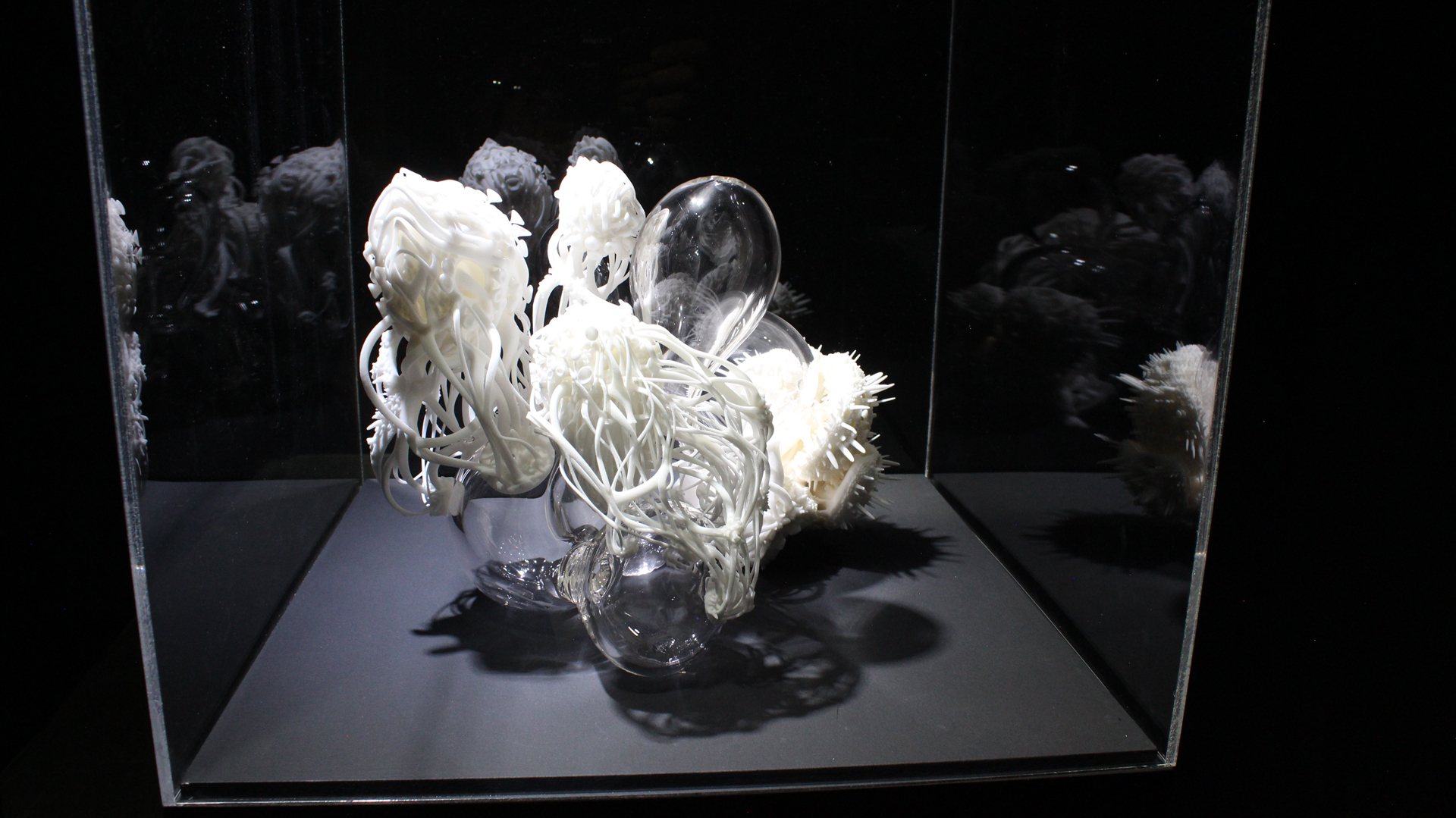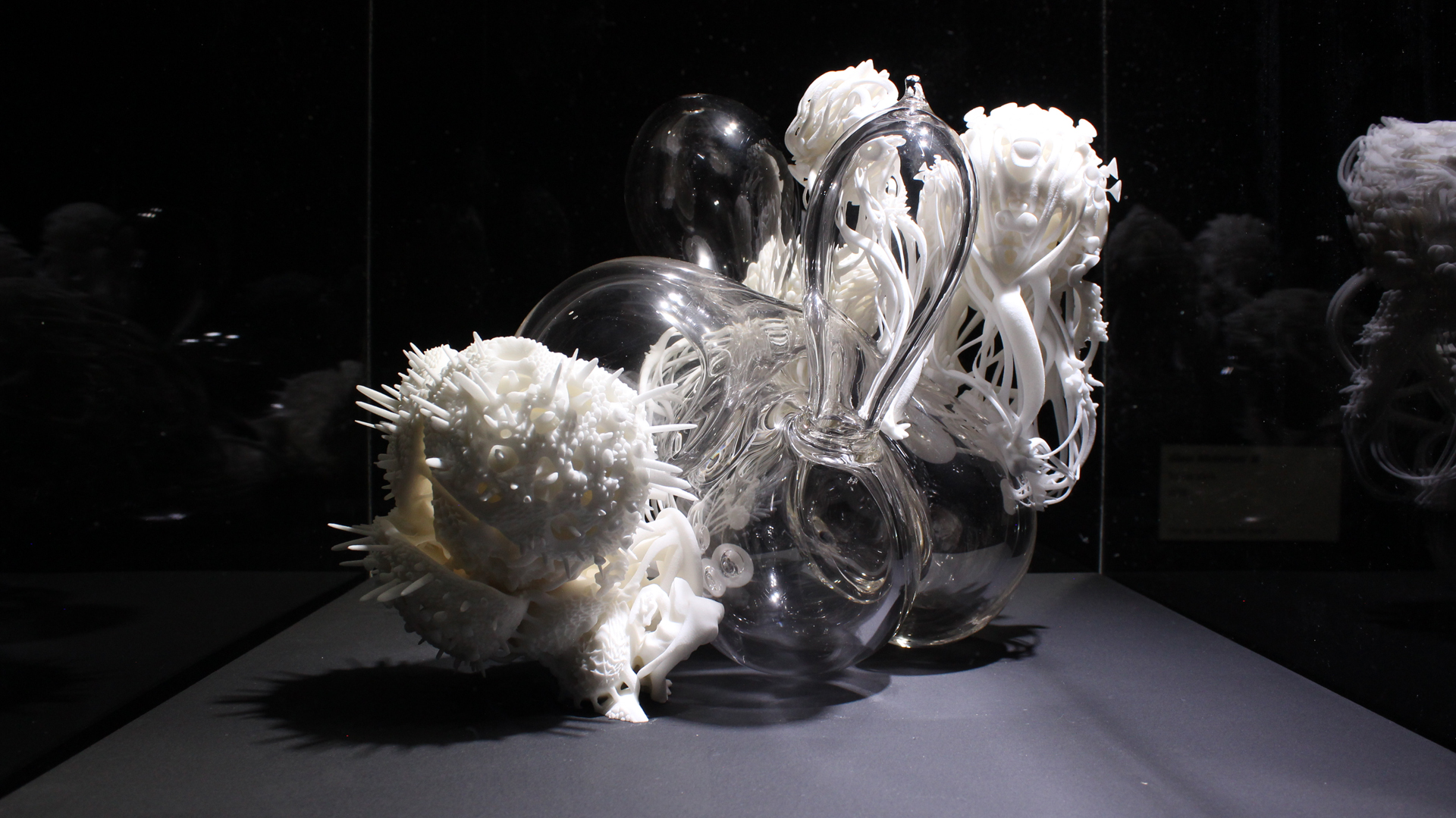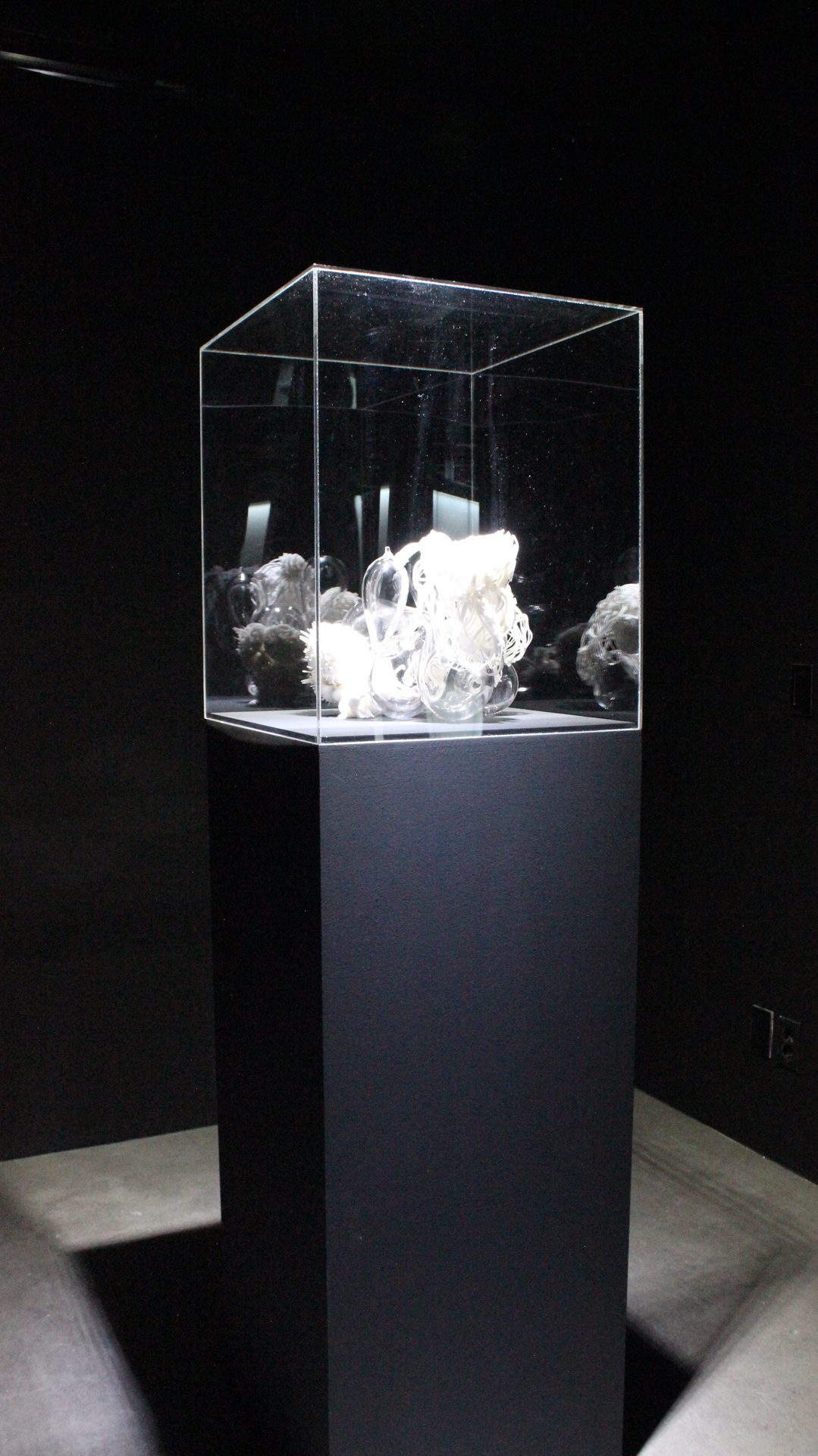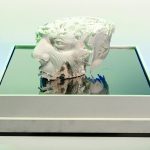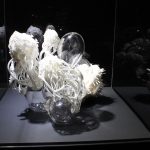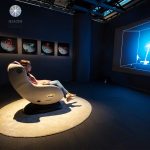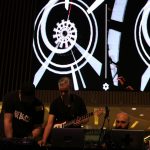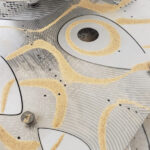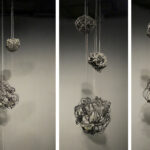Tobias Klein: Glass Mutations III
Title:
Artist(s) and People Involved:
Exhibiting Artist(s):
-
Tobias Klein
-
- City University of Hong Kong
Symposium:
Venue(s):
Medium:
Artist Statement:
The work Glass Mutations III contemplates the biological phenomenon of primordial cell mitosis – the beginning of life. The process of mitosis occurs when cells split and build organisms that are more complex than the single cell organism. Glass mutation III translates this evolution into a geometric and material complex interplay between the traditional craft of glass and the contemporary craft of 3D modeling a printing.
Formally, instead of imitating the symmetrical, binary mitosis, always splitting from one cell into two, Glass Mutation III, is a construct of two sets of individually merged glass volumes, comprised each of a three-fold split. In biological terms, this mitosis would not be able to occur with three cells involved on a regular basis. Similar to cancer, where certain cells are able to split into more than two daughter cells, the work diverges traditional notions of evolution and enters the territory of mutation.
In material and crafting context, on the one hand, the brief moments to shape the glass in its temperature-induced plasticity contrast the enormous longevity of the resulting annealed glass object. On the other, digital 3D design is a timeless process. Binary digital data is without a time component – without a moment of plasticity and without the opposite – decay or withering. 3D printed artifact, a reified object, is fragile and has a moderate half-life of less than 25 years before the UV receptive resins and polymers are starting to break down.
In the analog, each working step leaves traces and is a unique combination of viscosity and force – impossible to repeat. While the digital embodies unlimited history-based modeling steps – enabling the sliding forward and backward in the making process – a process of flux rather than concrete design steps. The binary condition of the work results in the establishment of a hybrid – a Digital Craftsmanship.

